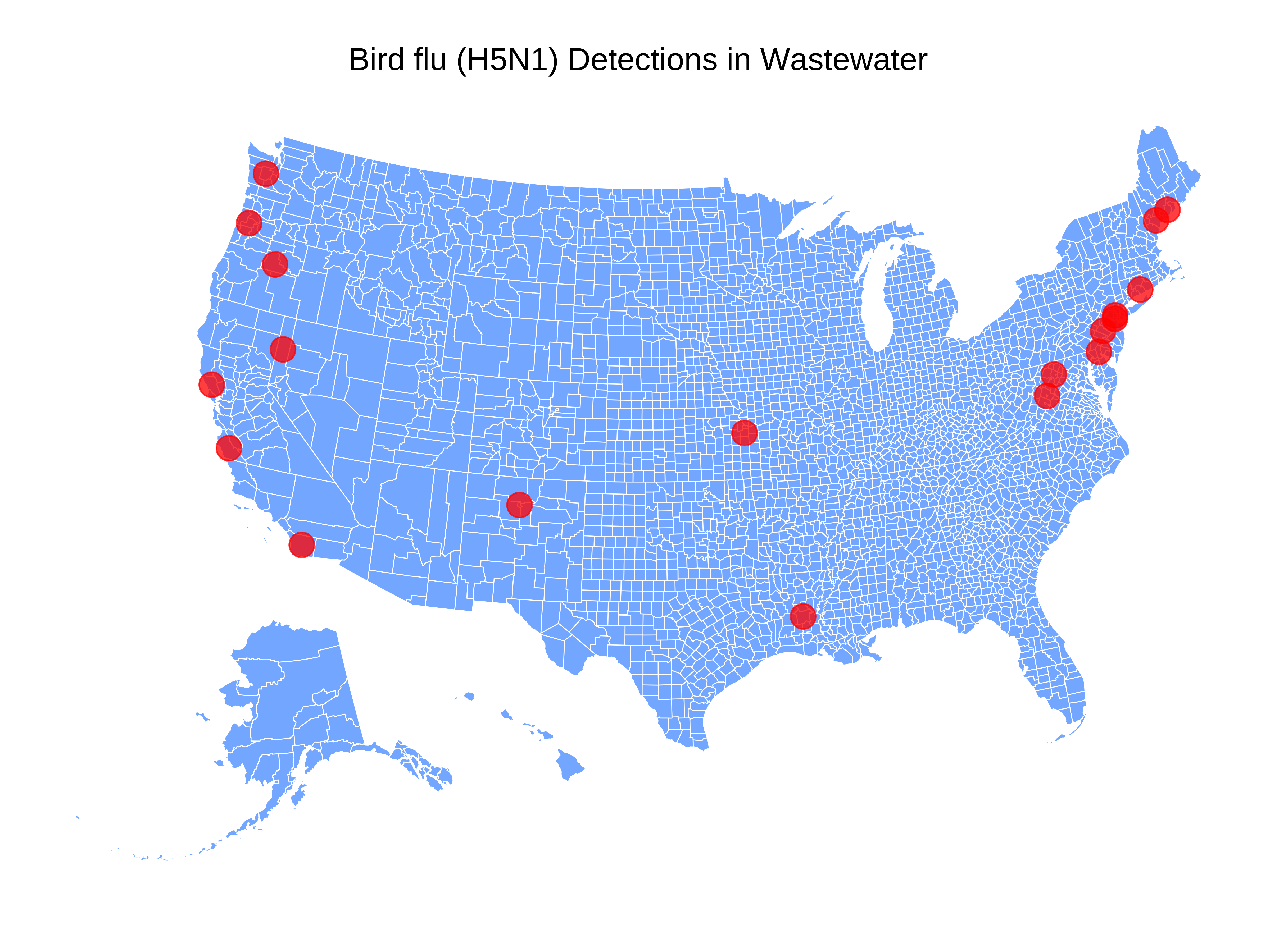At Biobot, we analyze wastewater across the country for various infectious disease pathogens....

Respiratory Virus Risk Reports
Comprehensive Insights for COVID-19, Influenza, and RSV
COVID-19, Influenza, and RSV Wastewater Monitoring in the U.S. | Week of December 16, 2024
Throughout the respiratory season, we analyze wastewater for the presence of respiratory syncytial virus (RSV) and influenza virus (types A and B). Together with COVID-19, these three pathogens are outsized contributors to our seasonal respiratory illness burden. In this data series, we’ll guide you through the wealth of data we’ve gathered from our Biobot Network of national sampling sites, aiming to shed light on emerging trends in respiratory virus activity and community viral load. Our goal is to equip you with information to make informed decisions.
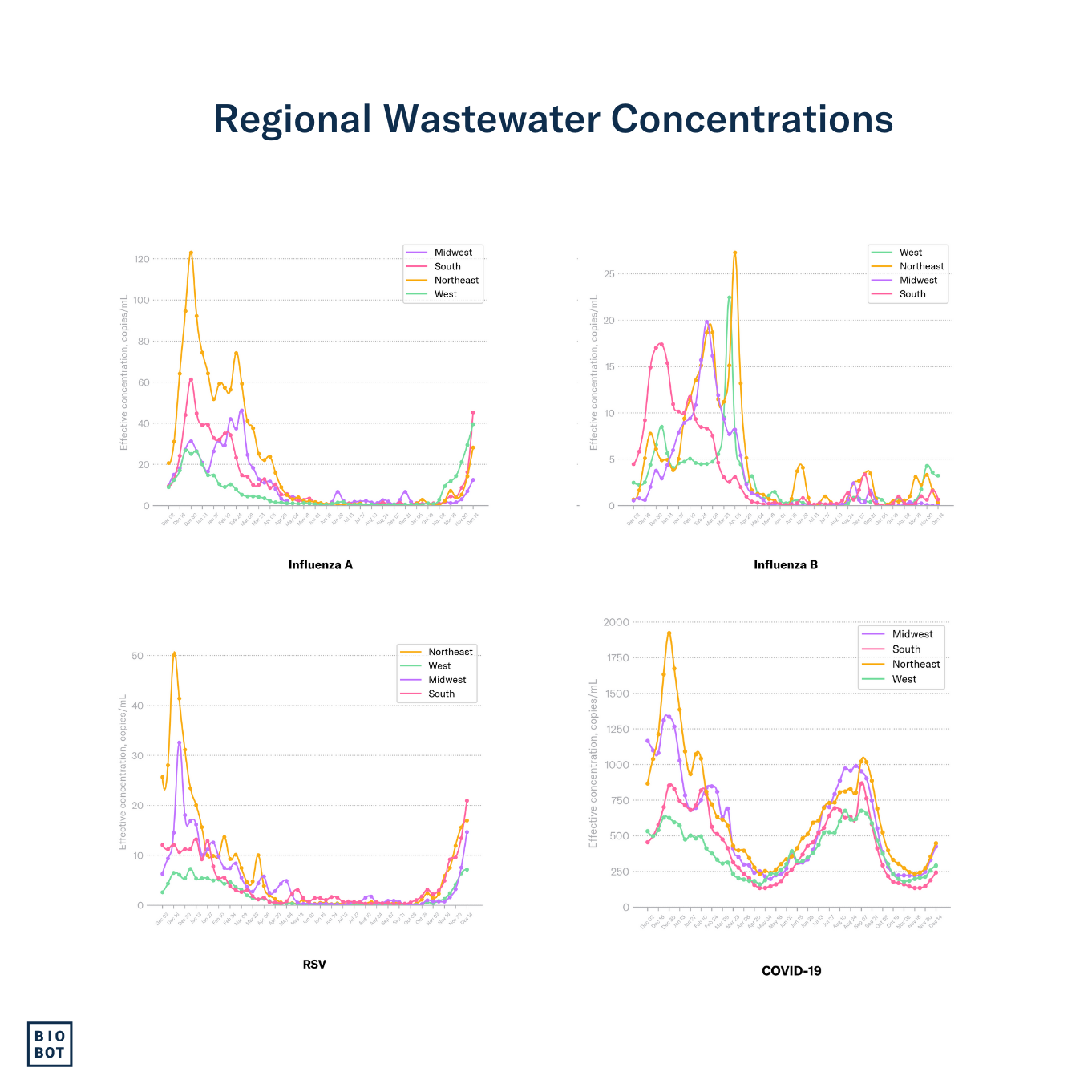
Data Note: Samples are collected from participating locations, and processed by our lab team on a rolling basis. Each point on the figure represents the weekly average concentration, from Sunday – Saturday (corresponding to the MMWR week), aligned to that week’s Saturday.
Contributors

Marisa Donnelly, PhD
Public Health Partnerships Epidemiologist
Previous Risk Reports
Summary: Week of 12/16/24
Biobot’s national wastewater network shows that SARS-CoV-2, influenza A, and RSV, are all increasing in week 50 (through December 14, 2024). Influenza B continues to fluctuate at low levels. National hospitalizations for COVID-19 are holding steady, currently at 1.4 per 100,000 people in week 49 (through December 7, 2024). National hospitalizations for RSV and influenza continue to increase, currently at 1.4 and 0.9 per 100,000 people in week 49, respectively.
The Bottom Line: COVID-19, RSV, and influenza are increasing. As we head into the holidays and social gatherings increase, it’s good to remember these recommendations to stay healthy: stay current with vaccinations and boosters, consider wearing a mask in crowded areas, and if you feel unwell, minimize contact with others.
National Outlook
COVID-19
National SARS-CoV-2 concentrations are increasing.
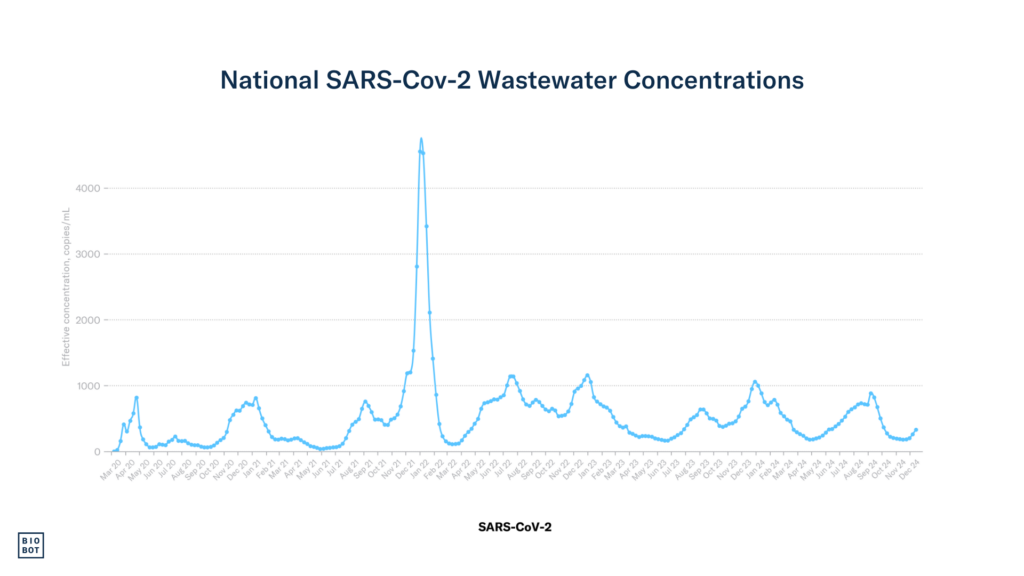
Influenza
National influenza A concentrations are increasing while influenza B is fluctuating at lower levels.

RSV
National RSV concentrations are increasing.
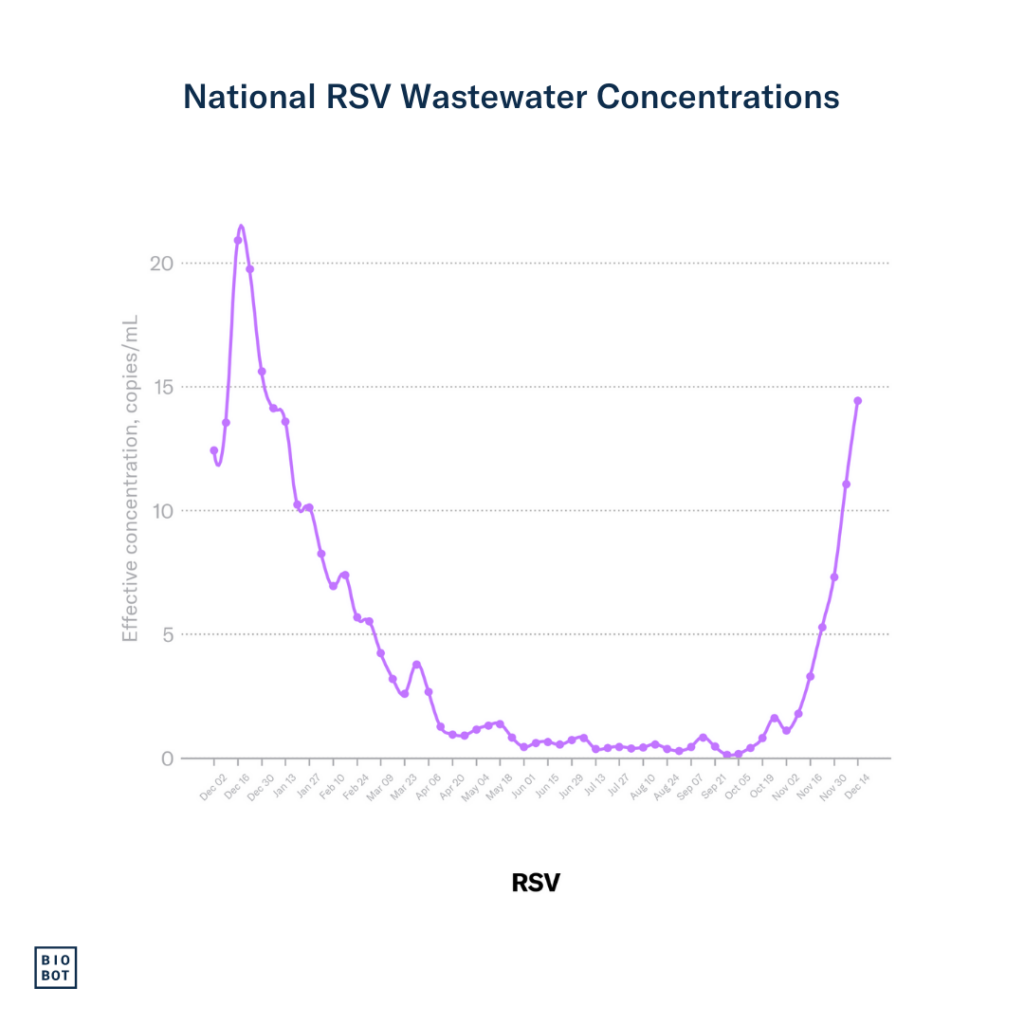
Regional
The South
COVID-19: SARS-CoV-2 concentrations are increasing in the South.
Influenza: Influenza A concentrations are increasing in the South, while influenza B is fluctuating at low levels.
RSV: RSV concentrations are increasing in the South.
The Midwest
COVID-19: SARS-CoV-2 concentrations are increasing in the Midwest.
Influenza: Influenza A concentrations are increasing in the Midwest, while influenza B is fluctuating at low levels.
RSV: RSV concentrations are increasing in the Midwest.
The Northeast
COVID-19: SARS-CoV-2 concentrations are increasing in the Northeast.
Influenza: Influenza A concentrations are increasing in the Northeast, while influenza B is fluctuating at low levels.
RSV: RSV concentrations are increasing in the Northeast.
The West
COVID-19: SARS-CoV-2 concentrations are increasing in the West.
Influenza: Influenza A concentrations are increasing in the West, while influenza B is fluctuating at low levels.
RSV: RSV concentrations are increasing in the West.
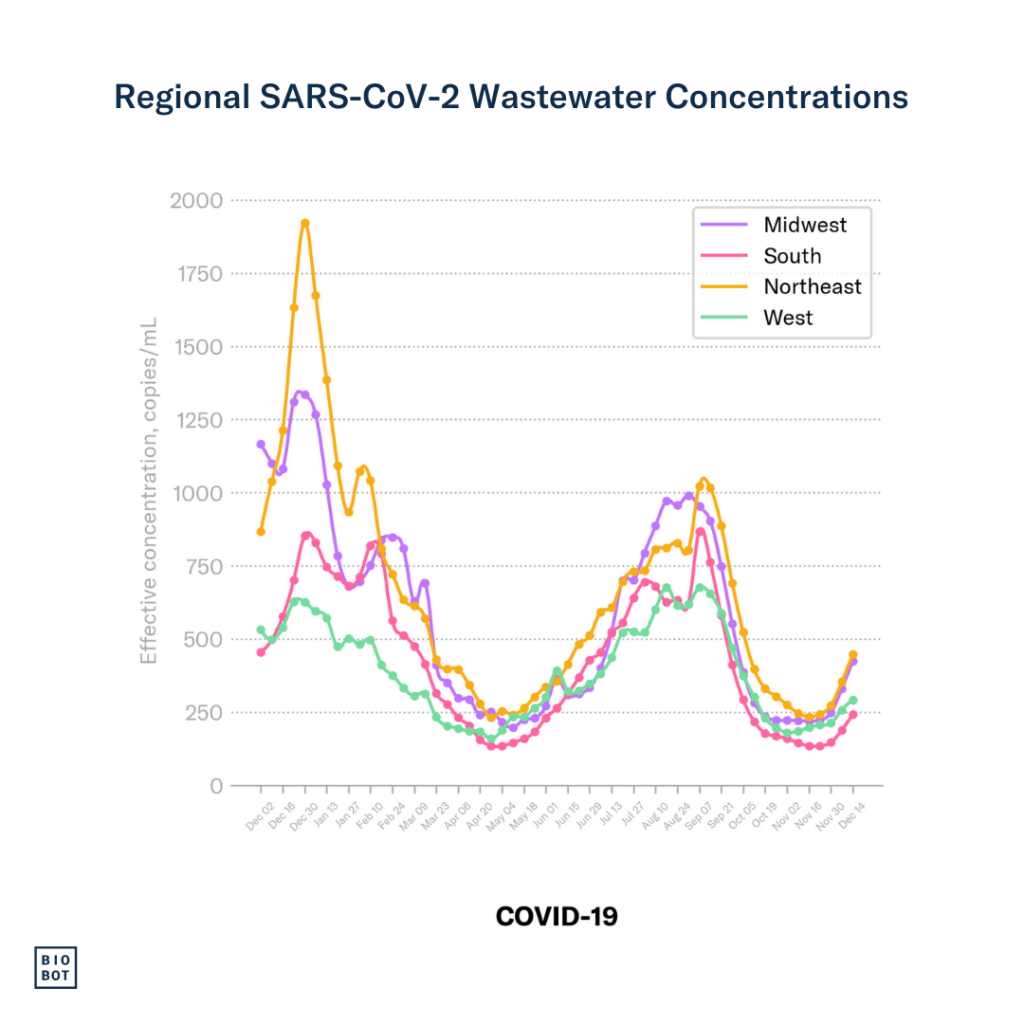

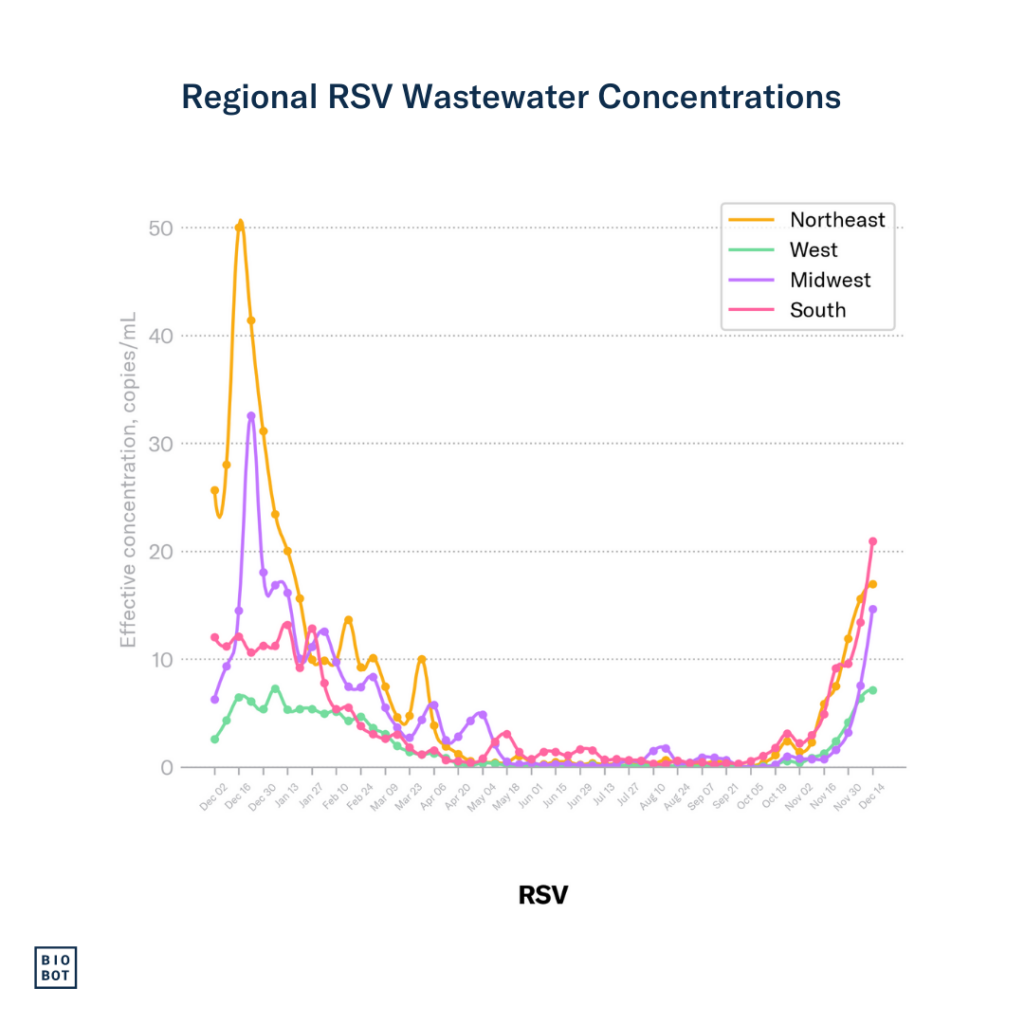
Footnotes:
We continue to monitor the evolving H5N1 influenza virus situation, and can now test samples specifically for H5 (including H5N1) — please reach out to hello@biobot.io if interested. A quick reminder that Biobot’s influenza A assay described in this report includes the H5N1 influenza subtype, which is an influenza A virus, but does not distinguish between the different subtypes of influenza A (e.g. H5N1 vs H1N1). We will share any important updates as we have them via Twitter and Bluesky, and in the risk reports.
Wastewater data from Biobot Analytics for RSV, influenza, and SARS-CoV-2 are through December 14, 2024 (MMWR week 50). Clinical data for RSV, influenza, and COVID-19 are from the Centers for Disease Control and Prevention. Updates to clinical data are through December 7, 2024 (MMWR week 49).




